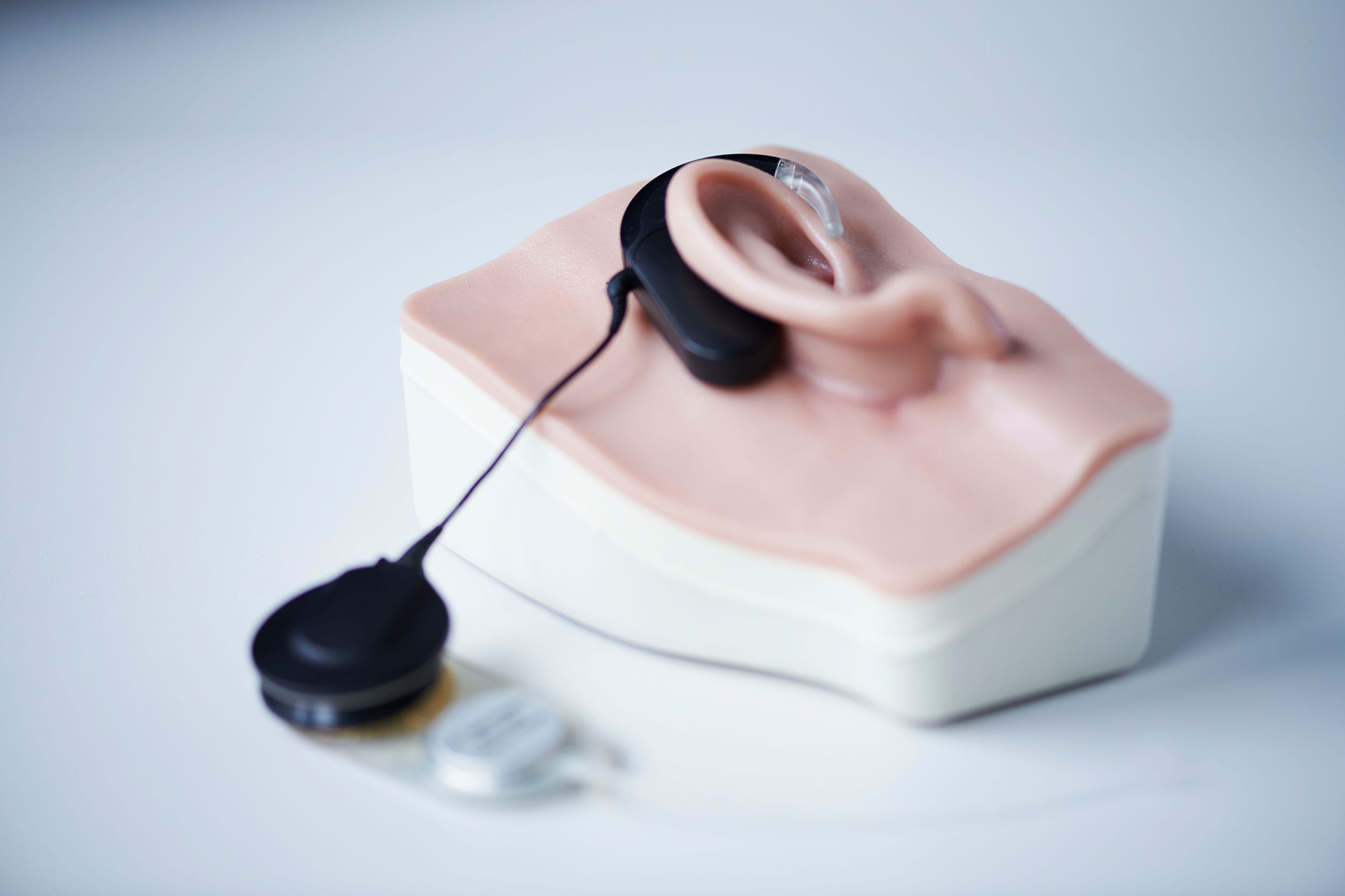
Frequently asked questions
The section of this website that deals with questions and answers about the CI is divided into two different areas: In the section for CI users, important questions for patients who have already been implanted are discussed. The CI general section answers questions that frequently arise prior to CI treatment.
For CI users
Can I swim with my CI?
You can swim with the implant alone, but you should remove the speech processor worn behind the ear. Modern speech processors are relatively well protected against splashing water, so that they can be worn in light rain, for example, without any problems. However, they should not be worn when bathing or swimming, as there is a risk of damage to the speech processor.
Are there any sports that I cannot do with my CI?
In principle, you can play sports with a CI without any restrictions. It is only not advisable to do sports where strong blows to the head are to be expected, as is the case with some martial arts. Diving should also only be practiced at depths of up to 25 meters in order to prevent mechanical damage to the implant due to the different pressure conditions.
Are there toys that are unsuitable for children with a CI?
Toys with strong magnets are available. These toys should not be made accessible to a child with CI. With plastic slides, care should be taken to ensure that the speech processor is removed if possible.
Can I benefit from the development of future speech processors?
The various CI manufacturers are constantly developing new speech processors, which are generally compatible with older generations of implants. If the responsible cost bearer (usually the IV or health insurance company) agrees, new speech processors can be fitted after at least 6 years.
Which batteries can I use and where can I get them?
The various CI manufacturers each recommend a specific product to ensure the longest possible battery life. In addition, some products also offer the option of operating the CI with rechargeable batteries. The clinics and manufacturers will provide you with detailed information on which speech processor can be operated with which batteries. You can then purchase the batteries directly from the clinic or from hearing aid acousticians.
Are there special insurances for my CI?
In principle, we recommend insuring the speech processor against theft and loss. Depending on the age of the device, the IV may otherwise charge the patient a not inconsiderable co-payment. It is also advisable to obtain information from the relevant IV office before taking out insurance, as this may vary from canton to canton. Further information on CI insurance can be found on the website of the CI Interest Group Switzerland.
How do I get an FM system for my CI?
In general, CI patients who are at school, in training or working are entitled to an FM system from the IV. You can obtain an FM system from a specialist hearing aid acoustics store of your choice. Here you will also be advised about the possibilities and the acoustician will help you with the application.
Can I keep my speech processor on when traveling by air?
It is generally permitted to wear the speech processor when traveling by air. Only during take-off and landing should the speech processor be switched off due to general legislation. It is recommended that you obtain information about the individual regulations from the relevant airline before each trip.
CI General
How long does a CI "last" - do I have to expect further operations?
This question cannot be answered correctly at present, as most implant generations are still too young. In general, the implant has been developed for a maximum service life of up to 40 years. Therefore, a further operation in the course of a lifetime cannot be ruled out.
How often does my device need to be serviced and checked?
In the initial fitting phase for new patients, regular adjustments must be made over several weeks to months. As soon as the settings stabilize, the speech processor needs to be checked and adjusted every 9 to 12 months. Children should have at least two adjustments per year.
Do I have to expect ongoing costs?
At present, the entire costs for adaptations, replacement materials, repairs and batteries are fully financed by the IV. There are no ongoing costs.
How long does the operation take?
The operation takes approx. 2 hours for unilateral treatment and up to 3 hours for bilateral treatment. It is performed under general anesthesia.
Are special vaccinations recommended?
Patients who have been fitted with a CI have a slightly increased risk of contracting bacterial meningitis. We therefore recommend that children and adults are vaccinated as a preventative measure. Before a cochlear implantation, children and adults should be vaccinated against pneumococci. The vaccination should be carried out up to two weeks before the planned CI operation.
Are there medical examinations that cannot be performed with the CI?
All forms of examination in connection with electromagnetic radiation require special precautions for CI patients. Not all forms of examination can be used. See also: MRI safety instructions.
